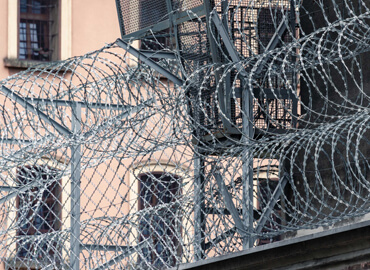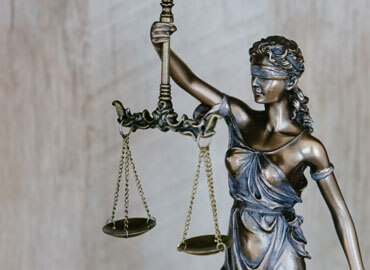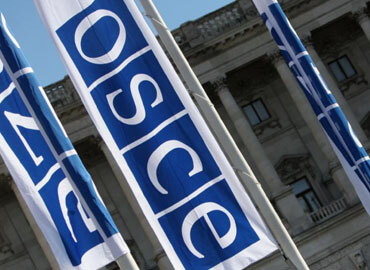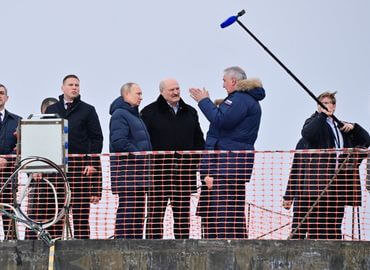The collecting of proposals by the authorities on amendments to the Constitution is nearing completion in Belarus. Having started this process, Lukashenko, in his traditional style, wants to shift the focus from the really pressing expectations and needs of Belarusian society to issues that are insignificant for Belarusians and preserve his power.
Soviet parallels and the scenario with the presidency of Kachanova
Well-crafted formulations about the constitutional process as a means of resolving the political crisis and a cure for public discord are designed to divert attention from the total delegitimization of Lukashenko and the legal default and criminal actions of state bodies.
The OSCE report on the situation in Belarus within the framework of the Moscow Mechanism cites the assessment of the Secretary General of the World Organization against Torture Gerald Steybrock, from which it follows that this may be one of the most serious violations of international law:
Such cruel treatment of such a large number of Belarusians, which can confidently be called torture, is disgusting in its scale. Given its systematic nature and scale, it clearly indicates a crime against humanity.
The actual expectations of most Belarusians are the resignation of Lukashenko and the holding of fair elections to all government bodies, the return of legality in the country, including the release of political prisoners, as well as the trial for murders, torture, and beatings of civilians.
The current pretense of constitutional reform does not in any way address these issues, especially considering that the process is entirely under Lukashenko’s control. Belarusian state bodies are creating the appearance of a public discussion, just as they did when the last Soviet constitution of 1977 was adopted. Hundreds of thousands of amendments and proposals from Soviet workers’ collectives and organizations resulted in purely formal changes that did not significantly change either the political system of the USSR or the lives of ordinary citizens.
Soviet parallels are not limited to attributes surrounding the adoption of a constitution. Lukashenko’s intention to revive other elements of the Soviet political system under slightly different names is becoming more and more obvious.
The discussion here regards the potential transformation of the All Belarusian People’s Assembly (APA) into an analogue of the Congress of the Communist Party of the Soviet Union (CPSU) by proposing through a change in the Constitution that the APA be considered a body that would determine the main directions of domestic and foreign policy. Judging by the way the pro-government commentators began to promote this idea, such a scenario is not just fiction, but one of the most likely scenarios for government agencies.
In this situation, the Presidium of the APA (an analogue of the Politburo of the CPSU Central Committee) would become a formal governing state body in the period between congresses, and none other than Alexander Lukashenko would head it. In the event of strong Kremlin pressure or even more powerful protests, Lukashenko would try to formally transfer the presidential office with reduced powers to a loyal person in his team, securing the real reins of government through a “new” influential constitutional status.
Then Lukashenko would have remained the supreme leader of Belarus, even formally losing his position as president. As follows from a recent statement made by Lukashenko, it is the APA that will be strengthened, and not the parliament or government:
If we remove some responsibilities from the president, they should be transferred somewhere. These powers are not appropriate for the government and parliament. To where should they be transferred? We must look for such a government body. And we have the All Belarusian People’s Assembly.
Moreover, if Lukashenko leaves the presidency and instead assumes a supreme position within the APA, then Prime Minister Roman Golovchenko would not necessarily become the nominal president, as might be assumed based on the norms of the current Constitution.
The commission of the Novopolotsk City Council of Deputies suggested that in the event of a vacancy of the presidency or the impossibility of fulfilling his duties, powers before the election of a new one would be transferred to the chairman of the Council of the Republic, which hints at Natalya Kochanova as one of the likely figures in a controlled political reshuffle.
Within the framework of such a personally advantageous scenario, Lukashenko would expect to receive a new position and continue to occupy the presidency to transfer it to a loyal person in the longer term.
Risks to Democracy and Law
The creation of a new constitutional status under Lukashenko through the scheme with the APA will in no way solve the problems with democracy and the rule of law in Belarus but will only exacerbate them.
Joining the formal process of constitutional amendments controlled by Lukashenko means his legitimization and disregard for the protest movement. Those political forces that will join the sham constitutional changes will become political corpses in the new democratic Belarus.
Marginal political forces such as the Liberal Democratic Party, the Republican Party of Labor and Justice, and several pro-Kremlin organizations are involved in this process to some extent, but the participation of more popular political forces is unlikely. Lukashenko hopes to cause a split in the leading democratic opposition forces on this issue, including through the involvement of Babariko’s team in opposition to Tikhanovskaya.
Ultimately, if the pseudo-constitutional process succeeds, then three main types of changes can be expected in the new Constitution:
- First, as already mentioned, this could mean giving the All Belarusian People’s Assembly a constitutional status with the Presidium and possibly also formal representations in the regions while securing constitutional status and important powers for the APA.
- Second, there may be formally democratic, but trivial, amendments to increase the authority of the legislative branch and regional authorities, possibly including the introduction of a jury. As follows from proposals formulated by the commission of the Novopolotsk City Council of Deputies, the facade of holding free elections of local authorities, in a very distorted version, could be created. Specifically, instead of appointing heads of local executive committees, it is proposed that residents elect a head from candidates proposed by the chairman of the regional executive committee.
- Third, there are other less significant changes that will not affect the political system or the lives of residents in any way (such as the abolishing of village councils).
The implementation of a two-stage special operation introduced through the All Belarusian People’s Assembly as a Trojan horse into Article 140 of the Constitution cannot be ruled out. This could mean a possible addition that the main sections of the Constitution can be changed not only through a national referendum, but also through the All Belarusian Assembly.
In this case, the referendum (if it will take place at all) could result in less significant, formally democratic amendments. And then the extraordinary congress of the All Belarusian People’s Assembly or its Presidium could approve unlawful amendments such as granting Lukashenko the status of the leader of the nation as in the Kazakh-Tajik model.
It is also possible that Lukashenko is considering the option of replacing direct presidential elections with parliamentary elections and introducing a mixed electoral system for elections to the lower house of parliament. In addition, the term of the presidency could be increased and the age limit reduced.
Opposing Democratic Transition: The Kremlin and the Siloviki
The ending of Lukashenko’s rule, whenever that happens, will not mean an automatic transformation of Belarus into a democratic rule-of-law state, but will only initiate a democratic transition. It will be opposed by members of the corrupt nomenklatura [trans. note – system of patronage that has its roots in the Communist Party system], as well as by segments of the security apparatus and the Kremlin.
Belarusian siloviki realize that in the event of democratic reforms they could not only lose their influence and resources, but also become involved in criminal cases for a host of illegal actions. Therefore, one can expect their opposition to free elections at all levels and real democratic reforms in alliance with part of the nomenklatura.
Belarus as a democratic country grounded in rule of law is also not the preferred option for the Russian leadership. The strategic goals of the Kremlin are not the reestablishment of the Belarusian people as the bearer of sovereignty and the return of legality in Belarus, but the appropriation of a significant piece of Belarusian sovereignty and the binding of the country to Russia in all spheres, without considering Belarusian national interests.
Russian officials periodically talk about the importance of dialogue in Belarus and amendments to the constitution. This creates an illusion that the Kremlin is supposedly interested in the democratizing of Belarus.
As Russian Ambassador Dmitry Mezentsev said on December 12, “this initiative of Belarusian President Alexander Lukashenko is designed to involve representatives of all levels of Belarusian society in the national dialogue, ensuring the development of the political system for the benefit of further democratizing the life of the state and strengthening its sovereignty.”
Positive assessments of the constitutional process in Belarus by the Russian ambassador and Russian officials are a side effect of a game of a different nature. The Kremlin and Lukashenko (here they are situational allies) share the opinion that talking about a nationwide dialogue and changes to the Constitution can divert public attention and reduce the people’s political mobilization. Massive acts of civil disobedience and unprecedented street protests make it difficult to “calmly” advance the new integration pact.
Statements about the importance of dialogue and amendments to the constitution are also a kind of attempt by Moscow to save face while playing a bad game with the Belarusian people. On the one hand, the Kremlin provides Lukashenko with political, informational, and economic (albeit very measured) support. On the other hand, the Russian government is trying not to totally lose the pro-Russian sentiment among the Belarusians.
The Kremlin consistently depicts the dilemma for Lukashenko as “deeper integration with or without you.” The periodic promotion of messages about a parliament with great powers by the pro-Kremlin media stems not at all from a desire to help Belarusians with the establishment of the rule of law in the country and a more democratic political system. It is more a consequence of Lukashenko’s delay in moving deep integration forward. In addition, an alternative for strengthening the parliament and pumping up pro-Russian parties for Moscow is important if Lukashenko does not maintain control over the situation in the country.
In the event of a sharp increase in Russia’s influence in the coming months, references to the Union State and other integration associations promoted by Moscow and fixed in the Constitution, as well as the exclusion of wording regarding the pursuit of neutral status – something that pro-Russian forces are actively lobbying – could be dangerous. In addition, combining the referendum on the Constitution with the referendum on the Constitutional Act of the Union State would be dangerous if, due to Lukashenko’s extreme economic and political dependence, the Kremlin succeeds in pushing it through.
There is no ideal transition option
There is a dual problem in Belarus, both with the undemocratic provisions of the current Constitution, which does not provide a proper system of checks and balances, and that it is a fiction and has been repeatedly violated. All democratic political institutions in Belarus were demolished long ago. The Supreme Court, the Constitutional Court, Parliament, and other state bodies are fictions that legitimize Lukashenko’s undivided one-man rule.
In the current situation in Belarus, all state authorities are in fact both illegal and illegitimate. Since neither the parliament nor practically any of the parliamentarians have adopted a clear statement regarding the total falsification of elections or the killings and torture of civilians, they lost the confidence of most Belarusians and, in addition to their illegality, have lost their legitimacy.
The same applies to the judicial branch of government, which is completely dependent on the executive branch and, because of the repressive conveyor belt, has lost the confidence of most of the population.
In a situation where all state bodies, concurrent with their illegal and illegitimate status, are totally dependent on Alexander Lukashenko, there is no clear version of a democratic transition that would build on the decisions of some legally operating state body. At least at its initial stage, the democratic transition should stem from the actions of legitimate and highly trusted political figures.
It seems that the church and independent media now have a high degree of trust among public institutions. It is for this reason that Lukashenko seeks to weaken them with his repression. Although they cannot initiate political processes, they are able to become important institutions for promoting democratic reforms. The Coordination Council enjoyed a high degree of public confidence initially in the post-election period, but in the past couple of months it has largely disappeared from the media agenda as a fully functioning public association.
Svetlana Tikhanovskaya has the highest degree of legitimacy among all Belarusian politicians. In fact, she is now a key figure in the start of the democratic transition. Its interim governing requires free and fair parliamentary elections and reform of the judicial system so that either the legislature or the professionally formed Constitutional Court decide on the future scenario for constitutional change.
Tragic History Lessons: Necessary Changes
Considering the tragic lessons of modern times in Belarus, several provisions should be clearly fixed in the Constitution that would counteract the existing system of election fraud, restructure the capabilities of the three branches of government, introduce mandatory elections for local authorities, and ban the state’s monopoly on media.
Typically, discussions of reform focus on the executive and legislative branches, however it is equally important to ensure maximum independence and professionalism of the judiciary. A separate section or sections of the Constitution concerning the foundations of the constitutional order and the most important democratic provisions must be declared absolute and immutable.
Such changes and a real discussion of society and professionals working on significant democratic reforms and their design during the rule of Lukashenko are not possible.
Материал доступен на русском языке: Конституционная реформа в Беларуси: Имитация и реальность











